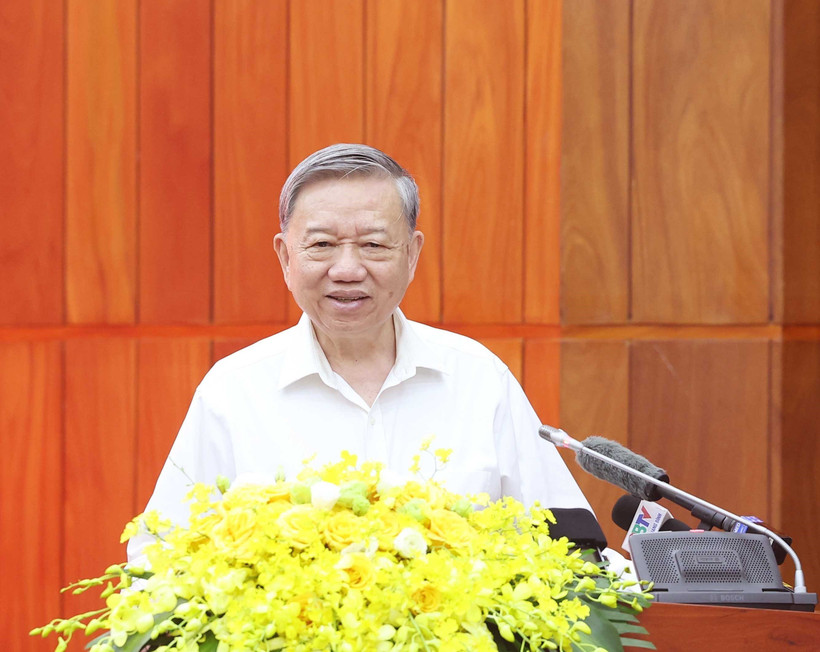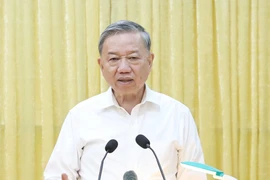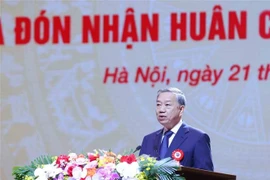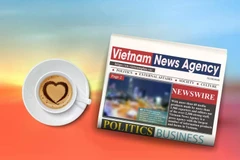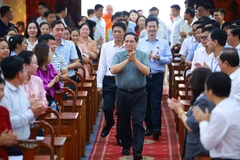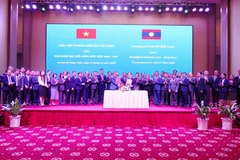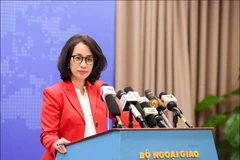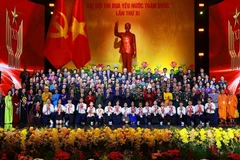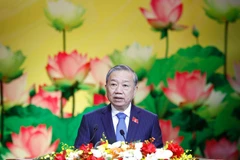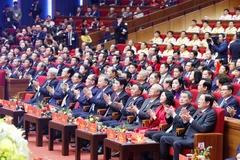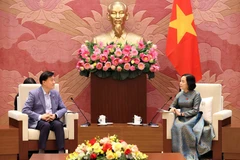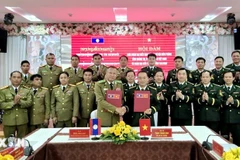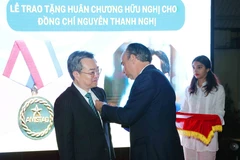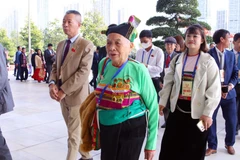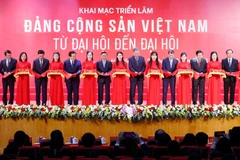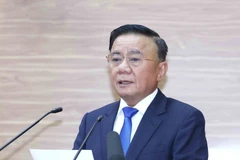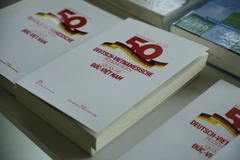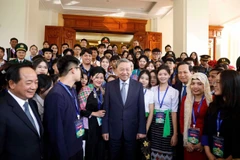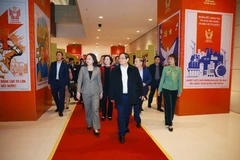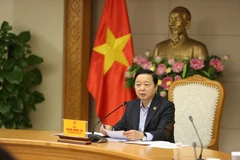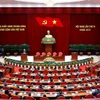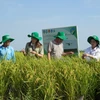Quang Binh (VNA) – The new Quang Tri province, created through the merger of the central provinces of Quang Binh and Quang Tri, is well-positioned to develop an open, modern economic model linked to key East-West and North-South economic corridors, maximising advantages from coastal space, deep-water ports, airports, and international border gates, Party General Secretary To Lam has stated.
At a working session with the Standing Boards of the Party Committees of Quang Binh and Quang Tri on June 25, the Party chief described the merger as the continuance of the history and deep-rooted tradition of solidarity and close bonds between these two resilient localities.
Quang Binh and Quang Tri share a rich heritage and numerous geographical, historical, and cultural similarities. Both provinces have demonstrated marked progress in shaping a sustainable growth model. In the first half of 2025, Quang Binh’s gross regional domestic product (GRDP) is estimated to rise about 7.74%, slightly exceeding the initial target of 7.7%.
Meanwhile, Quang Tri is likely to grow approximately 7.16% in the period. Total local budget revenue reached 2.14 trillion VND (81.83 million USD) by May 30, accounting for 46% of the central estimate and marking a 12.6% year-on-year increase.
Cultural and social sectors have been prioritised, with national defence and security firmly maintained, and the political system strengthened. Administrative reforms and digital transformation are driving improvements in investment, management, and public services.
The two provinces have thoroughly prepared to operate as a unified provincial administration. The new Quang Tri province will include 78 commune-level units and features key assets such as the UNESCO World Heritage Site of Phong Nha-Ke Bang National Park, a long coastline, historical landmarks, three international border gates, deep-water ports, a modern transport network, and two airports.
General Secretary Lam said that the newly-establised province will possess a diverse and integrated interregional transport system, facilitating comprehensive planning and dynamic development in maritime economy, border trade, logistics, and international commerce.
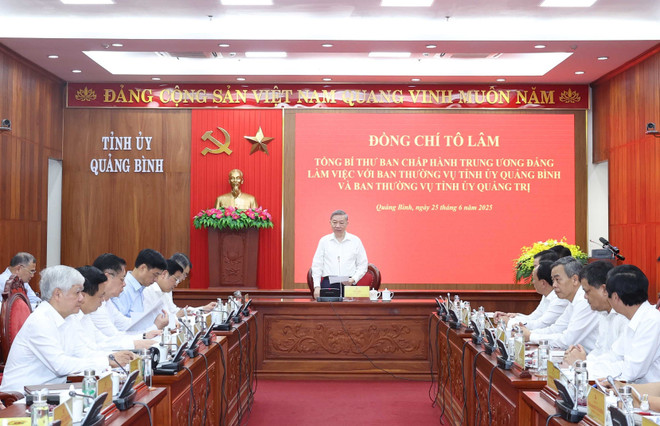
The merger is expected to foster linked value chains from production to consumption, leveraging infrastructure such as deep-water ports, coastal economic zones, and resource corridors along the East-West axis. This foundation will boost regional competitiveness, attract large-scale investment, and establish a new growth centre in North Central Vietnam, he said.
Historically frontline provinces during wartime, Quang Binh and Quang Tri share heroic traditions and deep patriotic spirit. Their cultural fusion, including Hoanh Son - Nhat Le and Ben Hai - Vinh Linh cultures, and ethnic diversity (including Van Kieu, Pa Co, Chut, Ruc ethnic groups) create a vibrant, distinctive social fabric.
The leader expressed his confident that with a population nearing two million and abundant resources, the new province has the capacity to build a modern, autonomous, flexible, and innovative local government capable of leading socio-economic development amid shifting growth models and deeper integration.
To capitalise on the new province’s potential and advantages, the Party leader urged the swift completion of a two-tier local government structure and staffing work. Support for officials affected by restructuring and development of innovative leadership are key, he said.
He highlighted the province’s extensive infrastructure, including expressways, railways, airports, and deep-water ports, as ideal for developing logistics, industry, and renewable energy. In addition, its diverse ecosystem that includes marine, island, adventure, and spiritual-cultural tourism (such as Phong Nha - Ke Bang, Con Co Island, La Vang, and the Thach Han River), should be developed into key tourism clusters with strong international competitiveness.
A comprehensive review and integration of policies and plans are needed to create a stable, attractive environment for investment, with emphasis on digitalisation and fostering a digital start-up ecosystem involving youth, women, and farmers. Special support mechanisms should assist remote and ethnic minority communities in accessing education and skills.
The Party leader reminded new Quang Tri to make careful preparations for the provincial Party Congress, reflecting a unified vision for a larger, stronger province. The new leadership must urgently develop a comprehensive plan for the preparations of the Congress, assigning specific tasks to each group and individual, with close monitoring and supervision of progress; while also enhancing communication work to highlight the goals, significance, and expectations of the merger.
Given the province’s size and diverse population, especially in border areas, General Secretary Lam underlined that grassroots engagement and coordination are essential to build consensus and trust. National defence, security, and social order must be maintained without disruption during restructuring to ensure political stability, he added.
Drawing on the localities’ proud history and solidarity, he said he is confident the merger will be a strategic milestone, positioning Quang Tri as a new growth hub in north-central Vietnam.
Earlier, the Party chief and his entourage laid wreaths and offered incense at the temple commemorating President Ho Chi Minh and heroic martyrs in Quang Binh./.
